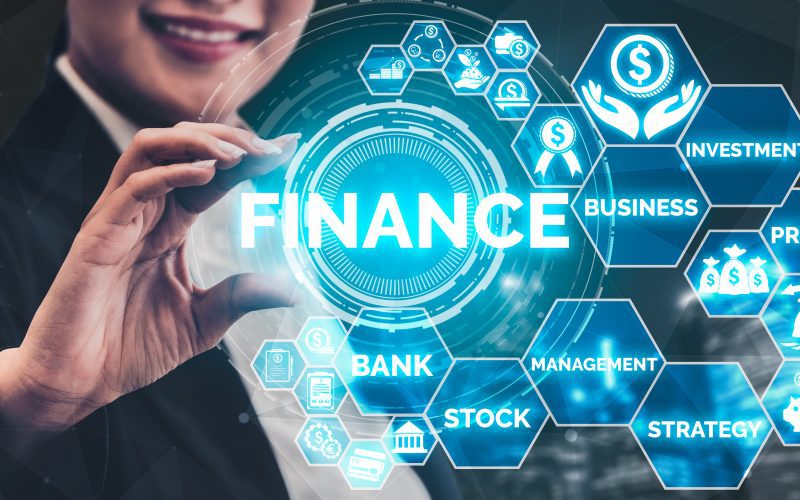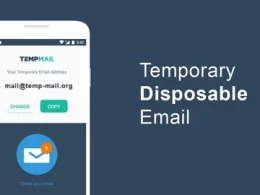Decentralized Finance (DeFi) is transforming the world of personal finance. By using blockchain technology and smart contracts, DeFi removes intermediaries like banks and financial institutions, offering a more transparent, efficient, and accessible way for people to manage their money. This article will explore how DeFi is changing personal finance, comparing it with traditional systems and analyzing its benefits and challenges.
1. Introduction to Decentralized Finance (DeFi)
Decentralized Finance, commonly known as DeFi, is an emerging financial ecosystem built on blockchain technology. Unlike traditional finance, where banks and financial intermediaries control transactions, DeFi operates on decentralized networks, mainly using Ethereum’s blockchain. By eliminating intermediaries, DeFi creates a transparent, open-source financial system available to anyone with an internet connection.

DeFi encompasses a wide range of applications, including lending, borrowing, trading, and investing, all governed by smart contracts — self-executing agreements coded into the blockchain. These applications have gained significant popularity in recent years, especially among those seeking alternatives to conventional banking systems.
2. How DeFi Works in Personal Finance
DeFi operates through decentralized applications (dApps), which are built on blockchain platforms. The key components of DeFi include:
- Smart Contracts: These are coded agreements that automatically execute financial actions (like transferring funds) once conditions are met, removing the need for a central authority.
- Decentralized Exchanges (DEXs): These platforms allow users to trade assets without going through a middleman, such as a broker or bank.
- Lending and Borrowing: In DeFi, users can lend or borrow assets directly from one another, with interest rates determined algorithmically.
In personal finance, these tools offer new opportunities for managing money, from earning passive income through lending to investing in decentralized assets like cryptocurrencies.
3. Benefits of DeFi in Personal Finance
DeFi provides several key advantages over traditional financial systems, making it an attractive option for personal finance management:
a. Increased Accessibility
DeFi platforms are accessible to anyone with an internet connection, offering financial services to individuals who might be excluded from the traditional banking system. This is especially valuable in underbanked or developing regions.
b. Transparency and Control
Blockchain technology ensures all transactions are recorded in a public ledger, making them transparent and verifiable. Users have complete control over their funds without relying on third parties, reducing the risk of fraud or hidden fees.
c. Lower Costs
By eliminating intermediaries, DeFi reduces the costs associated with financial transactions. Traditional banks and brokers often charge fees for services like transfers, trading, and account management, which DeFi platforms minimize or eliminate.
d. Earning Opportunities
DeFi enables users to earn interest on their digital assets by lending them out or participating in liquidity pools. These opportunities often come with higher returns compared to traditional savings accounts.
4. Challenges and Risks in DeFi
Despite its many benefits, DeFi is not without challenges and risks. Some of the main concerns include:
a. Volatility
Cryptocurrencies, which are central to DeFi, are highly volatile. This can lead to significant financial losses, especially for those who are unfamiliar with the market dynamics.
b. Security Risks
While DeFi platforms are designed to be secure, they are not immune to hacks and vulnerabilities. Smart contract bugs, for example, can lead to massive financial losses if exploited.
c. Regulatory Uncertainty
DeFi operates in a largely unregulated space. As governments worldwide grapple with how to regulate cryptocurrency and decentralized applications, users may face legal uncertainties and potential changes in how these platforms function.
d. Technical Knowledge Barrier
DeFi requires users to have a certain level of technical understanding. For those unfamiliar with blockchain technology, navigating these platforms can be intimidating and confusing.
5. DeFi vs Traditional Finance: A Comparative Analysis
| Feature | DeFi (Decentralized Finance) | Traditional Finance |
|---|---|---|
| Control | Decentralized, user-controlled | Centralized, controlled by banks |
| Accessibility | Global, open to anyone with internet | Restricted by geography and regulations |
| Transparency | Fully transparent through blockchain | Limited transparency, private ledgers |
| Transaction Costs | Lower due to no intermediaries | Higher fees for banking services |
| Security | Blockchain technology, but prone to hacks | Strong, regulated, but occasionally breaches |
| Earning Potential | Higher returns through lending, staking | Lower interest rates in savings |
| Innovation Speed | Fast, due to open-source development | Slow, tied to regulatory approval |
6. Real-World Applications of DeFi in Personal Finance
DeFi’s applications are vast, with many already impacting personal finance. Some real-world examples include:
a. Decentralized Lending and Borrowing
Platforms like Aave and Compound allow individuals to lend or borrow cryptocurrencies without needing a credit check. Interest rates are determined by supply and demand, and the system works autonomously through smart contracts.
b. Savings and Interest Accounts
DeFi platforms such as Yearn Finance offer higher returns than traditional bank savings accounts. Users can lock up their assets in DeFi protocols and earn interest, often at much higher rates than traditional banks offer.
c. Decentralized Trading
Uniswap and other decentralized exchanges (DEXs) enable individuals to trade assets directly with one another without the need for an intermediary. This reduces transaction costs and allows 24/7 trading.
d. Stablecoins for Payments
Stablecoins like USDC and DAI, which are pegged to the value of the US dollar, provide a stable medium of exchange, making them ideal for everyday transactions without the risk of volatility associated with other cryptocurrencies.
7. Future Outlook: Will DeFi Dominate Personal Finance?
The future of DeFi in personal finance is promising but also filled with uncertainty. On the one hand, its rapid growth and innovation suggest that it could revolutionize how individuals manage and invest their money. The promise of greater accessibility, control, and financial inclusion makes DeFi attractive to many.
However, challenges such as security risks, regulatory hurdles, and the steep learning curve for users may slow its widespread adoption. As governments develop clearer regulations and the technology matures, we could see DeFi become a dominant force in personal finance, especially among tech-savvy and underbanked populations.
DeFi is a work in progress, but its potential to reshape personal finance is undeniable. With the right developments in security and regulation, it could offer individuals greater freedom and control over their financial futures.
8. The Role of Stablecoins in Personal Finance
Stablecoins play a crucial role in DeFi, offering a bridge between the volatility of cryptocurrencies and the stability of traditional currencies. Pegged to the value of fiat currencies like the US dollar, stablecoins like USDC, DAI, and Tether provide a reliable store of value. This stability allows users to conduct everyday transactions, save, or even earn interest, without the fear of losing value due to the fluctuating prices of other cryptocurrencies. For personal finance, stablecoins offer the convenience of cryptocurrency with the familiarity and security of traditional money.
9. How DeFi Supports Financial Inclusion
One of the most significant impacts of DeFi is its ability to support financial inclusion. In many parts of the world, traditional banking services are inaccessible due to geographic or economic barriers. DeFi, however, operates globally and is open to anyone with internet access, removing the barriers to entry commonly faced in traditional finance. This allows individuals in underbanked regions to access loans, savings accounts, and investment opportunities that were previously out of reach. By eliminating the need for bank accounts and credit scores, DeFi empowers people to take control of their financial future.
10. The Evolution of DeFi and Its Impact on Traditional Institutions
As DeFi continues to evolve, it is likely to challenge traditional financial institutions. Banks, brokers, and other intermediaries may need to adapt by incorporating blockchain technologies and offering more transparent, user-focused services. While some institutions are already exploring blockchain for back-end operations or launching their own digital currencies, the decentralized nature of DeFi poses a direct challenge to the centralized control these entities maintain. In the future, we may see a blend of traditional and decentralized systems, with each influencing the other to better serve users in personal finance.












